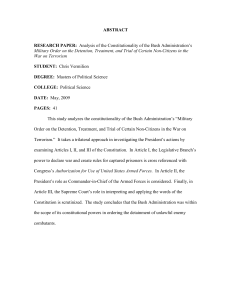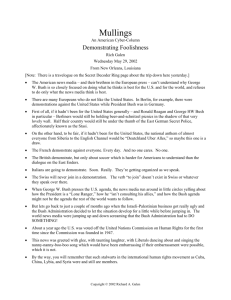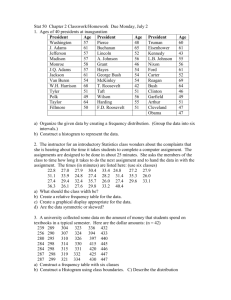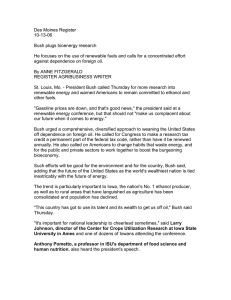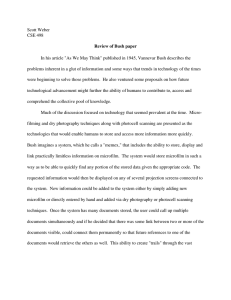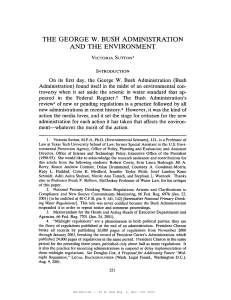Aid organisations hit out at Bush budget Home UK Homepage, accesskey '1'
advertisement
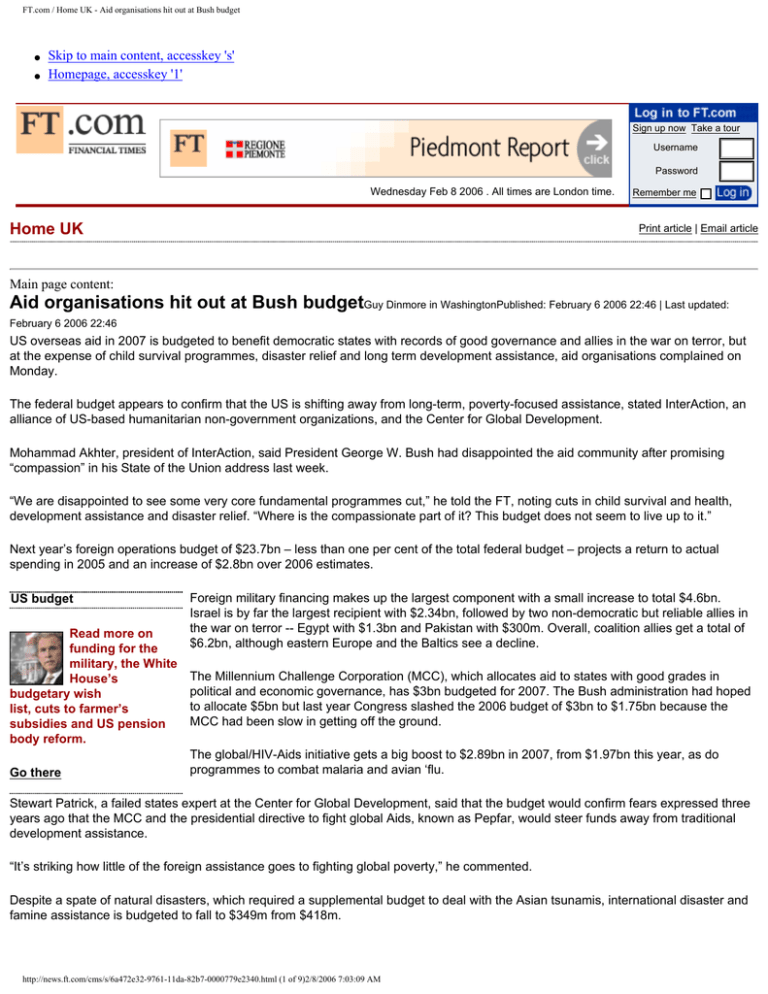
FT.com / Home UK - Aid organisations hit out at Bush budget ● ● Skip to main content, accesskey 's' Homepage, accesskey '1' Sign up now Take a tour Username Password Wednesday Feb 8 2006 . All times are London time. Home UK Remember me Print article | Email article Main page content: Aid organisations hit out at Bush budgetGuy Dinmore in WashingtonPublished: February 6 2006 22:46 | Last updated: February 6 2006 22:46 US overseas aid in 2007 is budgeted to benefit democratic states with records of good governance and allies in the war on terror, but at the expense of child survival programmes, disaster relief and long term development assistance, aid organisations complained on Monday. The federal budget appears to confirm that the US is shifting away from long-term, poverty-focused assistance, stated InterAction, an alliance of US-based humanitarian non-government organizations, and the Center for Global Development. Mohammad Akhter, president of InterAction, said President George W. Bush had disappointed the aid community after promising “compassion” in his State of the Union address last week. “We are disappointed to see some very core fundamental programmes cut,” he told the FT, noting cuts in child survival and health, development assistance and disaster relief. “Where is the compassionate part of it? This budget does not seem to live up to it.” Next year’s foreign operations budget of $23.7bn – less than one per cent of the total federal budget – projects a return to actual spending in 2005 and an increase of $2.8bn over 2006 estimates. US budget Read more on funding for the military, the White House’s budgetary wish list, cuts to farmer’s subsidies and US pension body reform. Go there Foreign military financing makes up the largest component with a small increase to total $4.6bn. Israel is by far the largest recipient with $2.34bn, followed by two non-democratic but reliable allies in the war on terror -- Egypt with $1.3bn and Pakistan with $300m. Overall, coalition allies get a total of $6.2bn, although eastern Europe and the Baltics see a decline. The Millennium Challenge Corporation (MCC), which allocates aid to states with good grades in political and economic governance, has $3bn budgeted for 2007. The Bush administration had hoped to allocate $5bn but last year Congress slashed the 2006 budget of $3bn to $1.75bn because the MCC had been slow in getting off the ground. The global/HIV-Aids initiative gets a big boost to $2.89bn in 2007, from $1.97bn this year, as do programmes to combat malaria and avian ‘flu. Stewart Patrick, a failed states expert at the Center for Global Development, said that the budget would confirm fears expressed three years ago that the MCC and the presidential directive to fight global Aids, known as Pepfar, would steer funds away from traditional development assistance. “It’s striking how little of the foreign assistance goes to fighting global poverty,” he commented. Despite a spate of natural disasters, which required a supplemental budget to deal with the Asian tsunamis, international disaster and famine assistance is budgeted to fall to $349m from $418m. http://news.ft.com/cms/s/6a472e32-9761-11da-82b7-0000779e2340.html (1 of 9)2/8/2006 7:03:09 AM FT.com / Home UK - Aid organisations hit out at Bush budget Next year the Bush administration is proposing that cash aid be made available to countries ravaged by famine, as well as food. In the past congress has opposed this, insisting that surplus US crops be sent instead. The government said food would have been delivered more quickly to the starving in Niger last year if US cash had been used to buy local resources. The Bush administration said for national security interests it would spend $115m on a new “national security language initiative” to promote the study of Arabic, Farsi, Mandarin, Hindi and Urdu, among others. Alhurra, the Arabic language broadcasting network which has performed poorly in independent ratings and is under investigation for possible irregularities by Congress, will expand daily coverage from 18 to 24 hours. Meanwhile funding is being cut in US radio broadcasts to the Balkans, Georgia and Thailand, as well as in Turkish, Hindi and Russian. EMAIL ARTICLE PRINT ARTICLE MOST POPULAR Skip to remaining content Main navigation menu: ● ● ● ● ● ● ● ● ● ● ● ● ● ● ● ● Home UK ❍ Asia | Europe | US World Companies Markets Market data Managed funds Lex Comment & analysis Technology Business life Your money Arts & Weekend In depth ❍ Iran ❍ Oil ❍ China ❍ Steel consolidation FT Reports ❍ Property ❍ The Future of Europe Jobs & classified Site services In depth UK election 2005The new IraqBudget 2005News File: IPOsArab-Israel conflict Columnists Philip StephensQuentin PeelLombardMartin WolfLucy KellawayCharles Pretzlik Track the news http://news.ft.com/cms/s/6a472e32-9761-11da-82b7-0000779e2340.html (2 of 9)2/8/2006 7:03:09 AM

